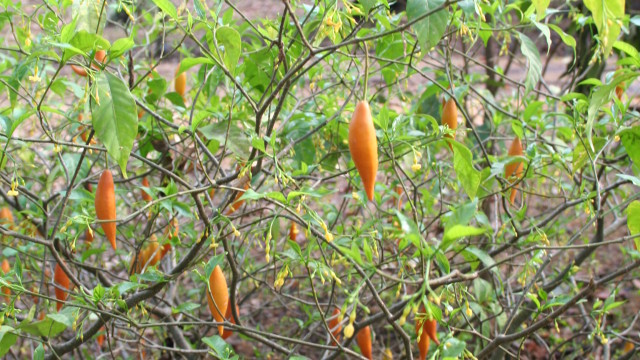Readers are probably familiar with LSD and MDMA (ecstasy), and may have heard of recent research on their medical uses. A lesser-known psychedelic drug, though, also shows potential despite federal prohibition. Ibogaine, extracted from the root bark of the iboga plant, shows great promise in treating drug addiction.
Tabernanthe iboga, a tropical shrub, is native to the sub-Saharan African nations of Gabon, Cameroon, and the Republic of the Congo. Practitioners of a tribal religion called Bwiti, which is recognized as an official religion in Gabon, cultivate the plant for its root bark. As part of traditional religious practice, members of tribes such as the Mabongo and Mitsogo consume doses of iboga large enough to cause visions and prolonged introspection. This practice is used both as an initiation ritual and a method of healing.
Although iboga was first formally studied in the 19th century, ibogaine’s effects on addiction were first noted by Howard Lotsof, a heroin addict in New York City. In 1962 he took a single dose of the drug, the effects of which lasted several days. Afterwards, he found that despite not using heroin at all during that time, he was not suffering any withdrawal symptoms. He has been free of addiction since then. Lotsof became a major advocate for ibogaine in treating addiction, writing and co-writing several published scientific papers and even persuading the National Institute on Drug Abuse to seriously investigate the drug. He even convinced the Food and Drug Administration to approve a clinical trial of the substance, although the trial was never completed.
Currently the US federal government classifies ibogaine as a Schedule I drug. This means it supposedly has no accepted medical use within the US, a high potential for abuse, and “a lack of accepted safety for use of the drug,” even “under medical supervision.”
As with other Schedule I drugs, though, this classification is highly questionable. Ibogaine has never been popular as a recreational drug. Those treated with it often refer to unpleasant side effects, such as intense nausea and vomiting, which do not make them want to repeat the experience. Instead, the majority of people taking it do so in an attempt to treat drug addiction.
Current human research suggests that safe use is certainly possible. Dr. Debra Mash, Professor of Neurology at the University of Miami School of Medicine, led a trial of the substance with about 300 subjects. She confirms that the drug blocks the effects of withdrawal from opiates and diminishes cravings. A 2004 documentary, Ibogaine: Rite of Passage, covers the substance’s traditional use as well as its use to treat otherwise intractable addictions. Former heroin addicts since Lotsof have similarly testified that a single dose of the substance caused a long-lasting shift in their mental state and was enough to end their addiction permanently, with no withdrawal symptoms.
Some research with very high doses demonstrated brain damage in rats, but these were much higher than the doses used in human research. Rats given doses similar to those used on humans did not suffer such damage.
The Multidisciplinary Association for Psychedelic Studies has funded research on ibogaine in New Zealand and Mexico. Unlike more well-known psychedelics, ibogaine has not been formally investigated as a treatment for any condition other than drug addiction. Also unlike classic hallucinogens, ibogaine and iboga have been blamed for several deaths, although these have been rare. The mortality rate among those treated is estimated at 1 in 300.
Although illegal in the US and several European countries1, ibogaine is not restricted by the international treaties which prohibit the more widely-known illicit drugs. In the UK, along with countries such as Mexico and Canada, it is neither banned nor legally approved as a medicine. Dr. Anwar Jeewa, who works with the substance at a clinic in Chatsworth, explains that is not “a magic bullet,” but “has to be taken in the right setting and treatment has to be followed up with psychosocial care.”
Image credit to wikimedia.org.
Notes
1. According to a 2012 BBC report, these include France, Sweden, Denmark, Belgium, Poland, Croatia and Switzerland.

